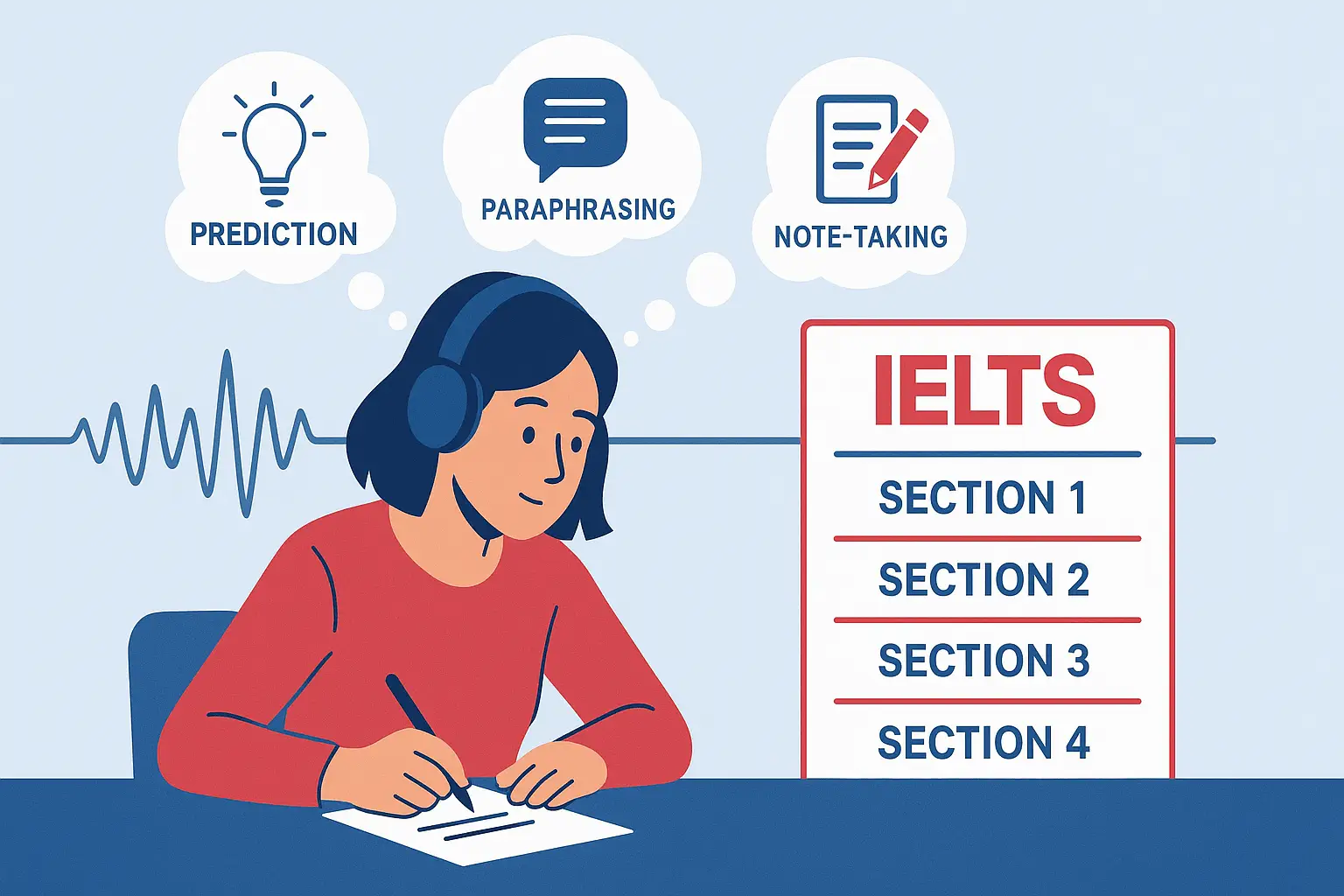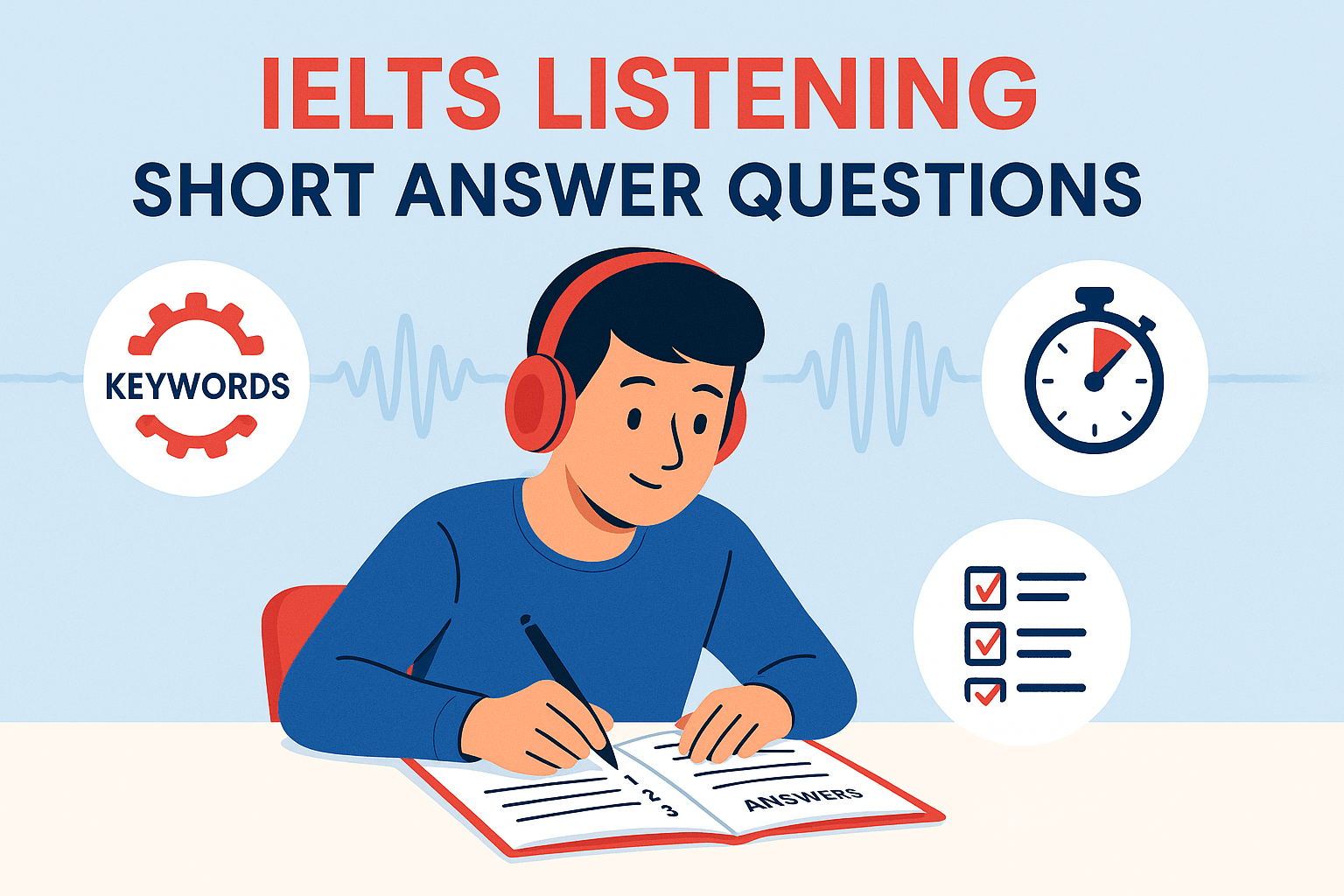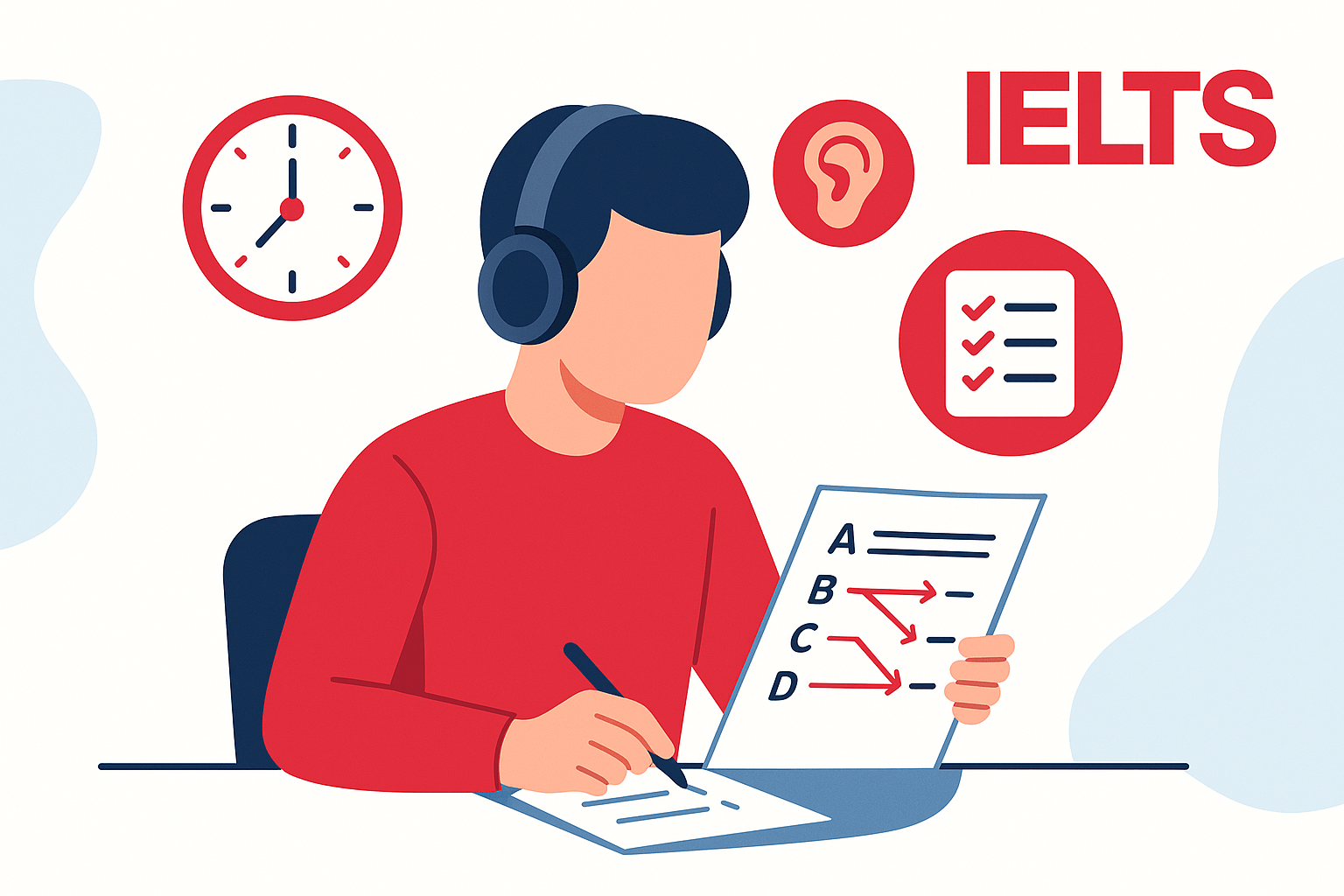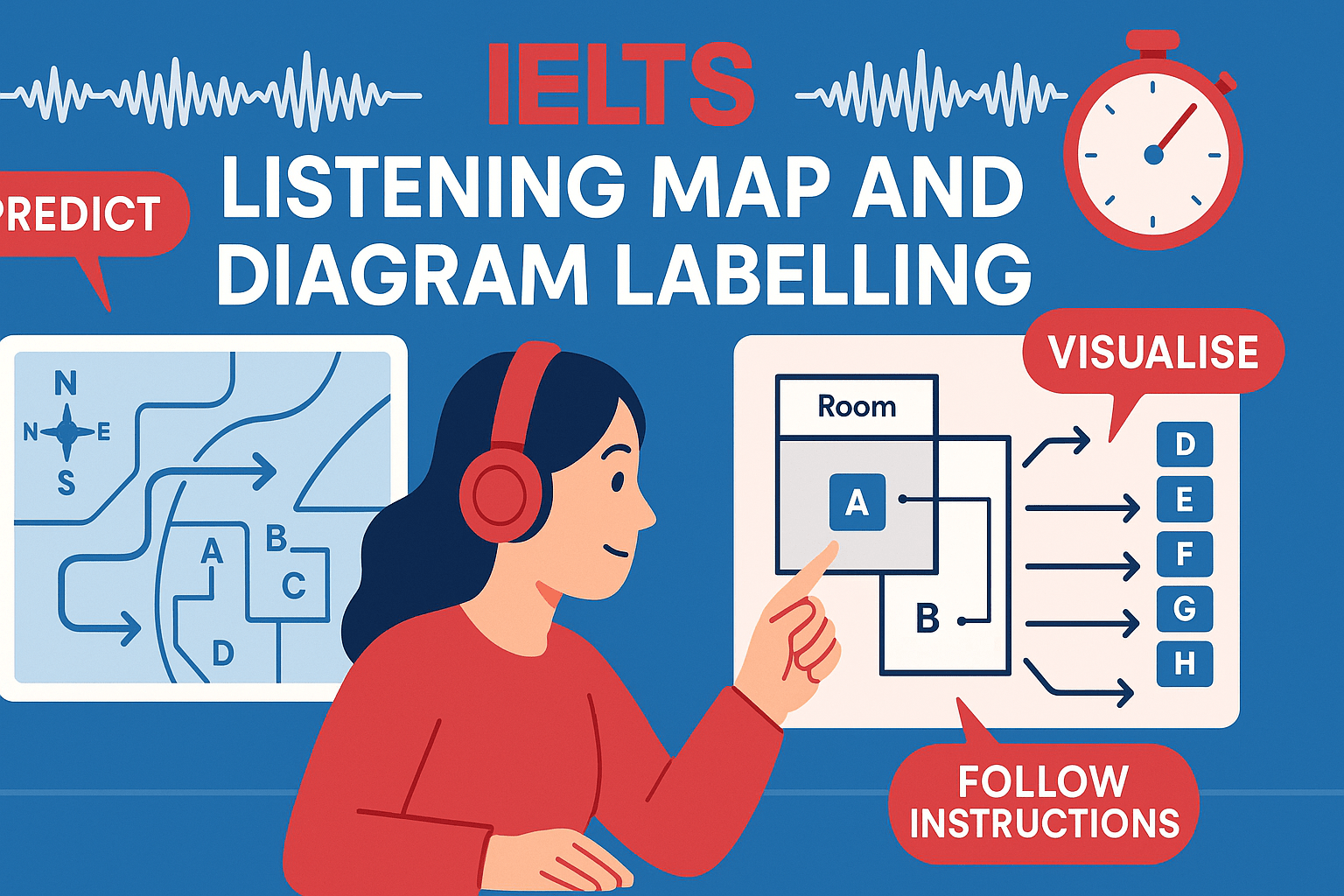- Understanding the Importance of IELTS Listening Strategies
- Master These Core IELTS Listening Skills
- 1. Prediction: A Skill That Saves Marks
- Section-by-Section IELTS Listening Strategies
- Stay Focused: Mental Skills Matter Too
- My Students’ Common Mistakes — And How We Fixed Them
- Want to Practice These Strategies?
- Frequently Asked Questions (FAQ)
- Final Thoughts
As an international IELTS teacher working with students from all over the world, I’ve seen one common challenge again and again: they struggle not because they don’t understand English, but because they don’t know how to approach the IELTS Listening test strategically. In this guide, I’ll walk you through the IELTS Listening strategies and essential skills that have helped hundreds of my students achieve Band 7, 8, and even 9.
Understanding the Importance of IELTS Listening Strategies
I often remind my students: the IELTS Listening test isn’t just about “listening.” It’s about how you listen. It’s about focus, timing, prediction, and managing your attention over four fast-paced sections. Without the right strategies, even strong English speakers lose marks.
When students come to me after repeated Band 6.5 scores, it’s usually not their language that needs improvement — it’s their technique. That’s where these strategies come in.
You can review the complete test format and scoring system here if you’re new to the test.
Master These Core IELTS Listening Skills
1. Prediction: A Skill That Saves Marks
Prediction is one of the most powerful IELTS Listening strategies I teach. Before the audio begins, you get time to read the questions. Use that moment to predict the type of word you expect — a name, a number, a noun, or a verb. For instance, if the sentence is “The main entrance is located near the ______,” you can guess it will be a place (e.g., car park, reception).
One of my students used to panic during Section 3, but once she mastered this skill using the prediction techniques in this guide, she jumped from 6.5 to 8 in just a month.
2. Note-Taking: Capture Ideas, Not Everything
Trying to write down everything is a mistake. Good note-taking means capturing keywords and skipping the filler. For Parts 3 and 4, this is especially important, since you’re listening to longer, more academic audio.
I show my students how to use abbreviations, arrows, and symbols, which you can learn more about in this note-taking techniques post.
3. Keyword Listening: Don’t Just Listen — Target
Another skill that transforms performance is keyword recognition. IELTS speakers often paraphrase what’s written in the question. That’s why learning to listen for meaning, not just exact words, is essential.
I cover specific examples and audio tricks in this keyword listening strategy guide that has helped many of my students sharpen this ability.
Section-by-Section IELTS Listening Strategies
The test is divided into four parts — and each one requires a slightly different strategy. I break down these parts in detail in my section-wise IELTS Listening strategies post, but here’s a quick overview:
- Part 1: Focus on spelling and numbers — predictable, but easy to miss.
- Part 2: Location maps and matching — use your scanning and prediction skills.
- Part 3: Group discussions — understand speaker roles and opinions.
- Part 4: Academic lecture — apply note-taking and keyword listening aggressively.
Stay Focused: Mental Skills Matter Too
No matter how good your English is, losing focus for 10 seconds can mean missing a whole answer. Many students tell me, “I zone out midway,” especially during long lectures. I developed a 3-part mental focus plan to train listening stamina, which you can follow in this focus-building guide.
My Students’ Common Mistakes — And How We Fixed Them
Let me share a quick real-world example. Ahmed, a student from Egypt, consistently scored 6.5. His English was strong, but he had trouble transferring answers and lost marks in Parts 3 and 4. I helped him:
- Create a pre-listening ritual to mentally prepare
- Learn prediction and paraphrasing signals
- Use answer-writing strategies like checking spelling and grammar
By combining all of the above, Ahmed scored 8.0 in his next attempt.
Another student, Priya from India, improved by following these targeted tips — she had a habit of overthinking in multiple choice questions. Using a strategy I break down in that post, she cut through distractions and got her target band.
Want to Practice These Strategies?
Learning strategies is one thing — practising them under test conditions is another. That’s why I always recommend taking full IELTS Listening practice tests using official-style materials.
You can also explore premium practice options at courseline.org if you want guided preparation with real feedback.
Frequently Asked Questions (FAQ)
What’s the best IELTS Listening strategy for beginners?
Start with prediction and understanding question types. Then practise focused listening using short audio clips. Build from there.
Should I answer while listening or wait until the end?
Answer as you listen. You won’t hear the recording again. But double-check during the transfer time.
How do I deal with tricky multiple-choice questions?
Focus on eliminating wrong options first. The speaker often mentions all choices, but only one is fully supported.
Can I write in capital letters?
Yes. In fact, I recommend using ALL CAPITALS in the answer sheet to avoid handwriting issues.
What if I miss an answer?
Let it go and move on. Dwelling will make you miss even more.
Final Thoughts
IELTS Listening success is not about luck — it’s about preparation. By applying the right IELTS Listening strategies and practising them consistently, you can move from Band 6 to Band 8+ like many of my students have.
If you’re serious about mastering these skills, take time to explore the full section guides and technique posts I’ve linked above. And don’t forget — every minute you invest now brings you closer to your dream score.
Let’s get started.





5 Responses
I like what you guys are up also. Such intelligent work and reporting! Keep up the superb works guys I have incorporated you guys to my blogroll. I think it will improve the value of my site :).